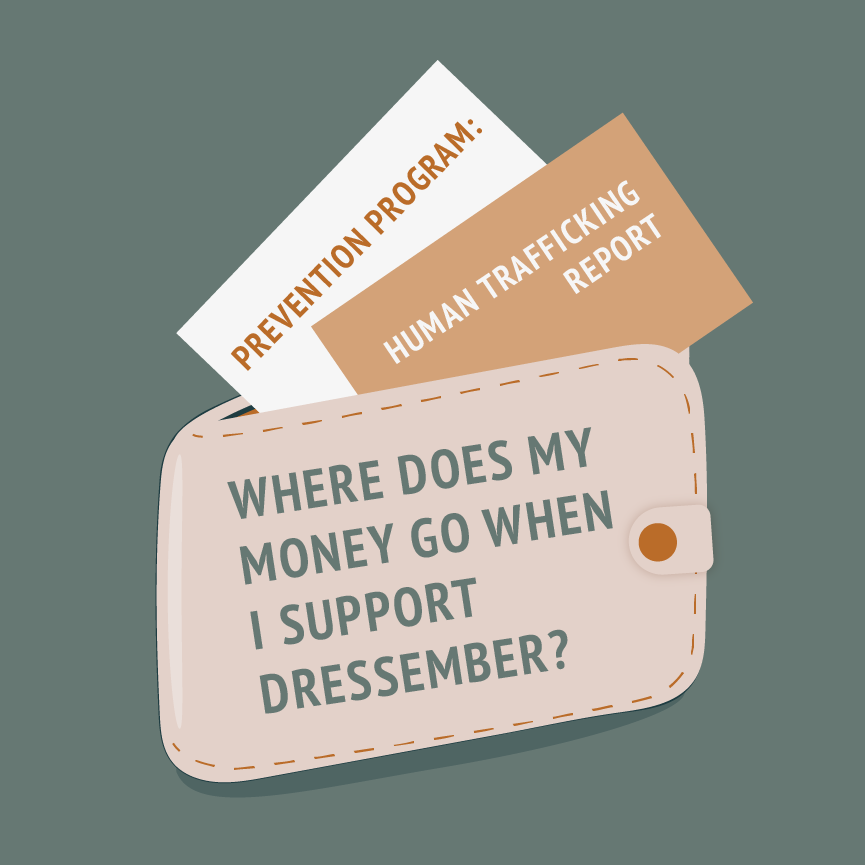The Dressember Network: The Human Trafficking Report
Perhaps no theme in political discourse has become more relevant than that of checking your facts. It’s hard to go even one day without hearing cries of “that’s what they want you to think” or “what’s your source on that” or perhaps, most famously of all, “fake news.” The concept has become over-played and many of us scoff when we hear it because it evokes feelings of frustration both at being discredited and at being deceived.
And yet.
Perhaps no theme in the anti-trafficking movement is more important than that of vetting information. Accurate information is absolutely essential to knowing what populations are most impacted and where gaps in services are. The better-informed we are, the better-capable we are to meaningfully pursue anti-trafficking efforts.
Photo by Tim Tebow Foundation on Unsplash
The anti-trafficking movement relies very heavily on accurate information. We are all familiar with the “myths” pages provided by organizations like the Polaris Project. These allow us to bust popular misinformation right upfront. However, the extent to which such statements and false statistics are believed can be the difference between enabling escape pathways for a survivor and a victim trapped in a trafficking situation.
There is evidence that traffickers in the United States currently operate with impunity: there is a tremendous gap between the number of human trafficking victims identified and the number of traffickers facing a conviction. A crucial aspect of the United States’ response to combating human trafficking is holding traffickers accountable through criminal investigations and prosecutions as well as civil lawsuits. But without data-driven research on enforcement efforts, policymakers, advocates, and practitioners are unable to make informed decisions about improving the prosecution component of the U.S. anti-trafficking response. The lack of research allows traffickers to continue operating with impunity.
That’s where the Human Trafficking Report comes in.
The Dressember Network resources the Human Trafficking Report, a reliable and comprehensive resource drawing data from every federal criminal and civil human trafficking case that United States courts handle each year. The report is generated by a group of attorneys and serves to hold traffickers and states accountable for exploitation. By taking information from a variety of organizations into account, the report presents the most critical information needed to reform the criminal justice system’s response to human trafficking.
The report is also intended to encourage collaboration across anti-trafficking groups through the collection and distribution of information. The Dressember Network supports accurate reporting that helps to quell the spread of misinformation through the Human Trafficking Report. In particular the Dressember Network supports efforts through the report to spell out the realities of human trafficking in the United States, shedding light on key trends and figures regarding how traffickers are held accountable at the federal level.
The Dressember Network is proud to support the Human Trafficking Report, which provides the community with a data-driven approach to advocacy. Increased access to and awareness of exhaustive and accurate data about human trafficking will fuel anti-trafficking efforts by allowing advocates to provide the information necessary to motivate more effective and tailored solutions to trafficking in the United States. With the support of the Dressember Network, the Human Trafficking Report allows data to shape conversations and inform policies that will lead to sustainable and long-lasting changes that move towards ending trafficking once and for all.
So, the next time that somebody asks you to check your facts, think twice before responding with frustration. Instead, consider that decreasing the spread of misinformation is a really effective way to fight trafficking. One way to ensure that the information you share is accurate is to only share information from trusted sources that you know to be correct. A great way to do this is by raising awareness using the Dressember statistics and social media images available through the advocate resources.
The Dressember Network is made up of 20 organizations that support programs in the following impact areas: advocacy, prevention, intervention, and survivor empowerment. The Dressember Network partners with the Human Trafficking Institute to make the Human Trafficking Report possible. Human Trafficking Institute is an organization dedicated to ending trafficking by working inside the criminal justice system to provide the experts, training, resources, and evidence-based research needed to free victims of human trafficking. When you support Dressember, you help dismantle trafficking holistically and in a way that prioritizes survivor needs and voices. Ready to join us? Register to become an advocate (and access accurate statistics that you can share to raise awareness) or make a donation today.
About the Author
Miranda Cecil is a second-year at Northeastern University School of Law. She graduated from the University of North Carolina in 2020 (go heels!) and shipped up to Boston. As a North Carolina transplant in New England, she loves exploring her new area on the weekends. In her free time, she enjoys cross-stitching, cycling, and reading. She hopes to use her legal degree and a passion for urban development to continue advocating for human trafficking survivors (and, despite the Boston winter, looks forward to the style challenge this December).



